Saturday, August 26, 2023 - 10h30 to 12h30 pm
The Philosophy of Idealism
Speaker - Carmela Luttinger
-
- Definition of Idealism
- The Work of Bernardo Kastrup
- Arguments for Idealism according to the Philosopher Bernardo Kastrup
- Implications of Idealism in human lives
Watch the video conference
NATURE GIVES US EXPERIENCE, THE REST IS THEORY
Purpose of the talk
I am not a philosophy specialist
Idealism is a very vast topic, there are many approaches to it
What is Idealism
Definition in Wikipedia:
- Idealism in philosophy, also known as philosophical idealism or metaphysical (the branch of philosophy that deals with first principles of things, such as being, knowing, identity, time and space) idealism, is the set of metaphysical perspectives asserting that, most fundamentally, reality is equivalent to mind, spirit, or consciousness; that reality is entirely a mental construct; or that ideas are the highest form of reality or have the greatest claim to being considered “real”.[1]
- The radical latter view is often first credited to the Ancient Greek philosopher Plato as part of a theory now known as Platonic idealism.
- Besides in Western philosophy, idealism also appears in some Indian philosophy, namely in Vedanta, one of the orthodox schools of Hindu philosophy, and in some streams of Buddhism.
- Idealism is accompanied by philosophical skepticism about the possibility of knowing anything that is independent of the human mind.
- Materialism is a form of philosophical monism (a theory that denies the existence of duality) which holds that matter is the fundamental substance in nature, and that all things, including mental states and consciousness, are results of material interactions of material things.
I came across Bernardo Kastrup and have been following some of his works.
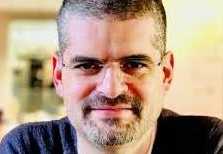 Bernardo Kastrup
Bernardo Kastrup
Bernardo Kastrup is a Dutch computer scientist and philosopher. He has written many books and articles in Scientific Journals.
He proposes a form of Idealism called Analytical Idealism.
I propose an idealist ontology that makes sense of reality in a more parsimonious and empirically rigorous manner than mainstream physicalism, bottom-up panpsychism, and cosmopsychism. The proposed ontology also offers more explanatory power than these three alternatives, in that it does not fall prey to the hard problem of consciousness, the combination problem, or the decombination problem, respectively. It can be summarized as follows: there is only cosmic consciousness. We, as well as all other living organisms, are but dissociated alters of cosmic consciousness, surrounded by its thoughts. The inanimate world we see around us is the extrinsic appearance of these thoughts. The living organisms we share the world with are the extrinsic appearances of other dissociated alters.
Source: “The Universe in Consciousness”, Journal of Consciousness Studies, Vol. 25, issue. 5-6 (2018), p. 125
The brain isn’t the cause of experience for the same reason that lightning isn’t the cause of atmospheric electric discharge, or that flames aren’t the cause of combustion. Just as flames are but the image of the process of combustion, the body-brain system is but the image of localized experience in the stream of universal consciousness.
Source: “Why the World Is Imagined: Summary”, Metaphysical Speculations, 1 Dec. 2018
According to Bernardo Kastrup: Analytical Idealism, a hypothesis that makes sense.
Reflection questions that he tends to ask are the following:
1-Do we see the world as it is in itself (i.e., as it really is)
- The incoherence of our ordinary intuitions.
- Example: Sunrise and Sunset
- Our intuitions are influenced by culture and language
- Evolution is conducive to survival not to seeing things as they are in themselves;
- Examples: dashboard on airplane, files in a computer, are instruments
- The physical world is the instrument through which we navigate our lives, and we perceive the output of the instruments;
- Something that tells you about the world is not the world;
- Every species has their own filters, their own dashboard;
- Dashboards convey information, just as a pilots fly by instruments of the plane, so we fly by our senses;
- We assume that the shapes and forms we see are how the world is in itself.
About the mainstream way that we conceive of reality which is called physicalism. (How Bernardo Kastrup talks about physicalism)
2- Physicalism
Wikipedia: In philosophy, physicalism is the metaphysical thesis that “everything is physical”, that there is “nothing over and above” the physical, or that everything supervenes on the physical.
- These are the principles of physicalism:
- What we perceive through our brain is actually how the world is in itself
- Qualities (emotions and sensory experiences) are generated through matter (our brains)
- Arrangement matter (of particles in the brain) explain feelings, pain, love.
- Only quantities (matter) exist and they explain qualities.
- What we experience with our senses we call ultimate reality, therefore ultimate reality is matter
- Counterargument to physicalism: A reduction in brain activity is accompanied by an increase in the richness and intensity of experience. Example NDE’s.
About the hypothesis of analytic idealism according to Bernardo Kastrup.
 3- Analytic idealism Hypothesis
3- Analytic idealism Hypothesis
- Matter is the dashboard of dials. (a REPRESENTATION of the world as it really is).
- There is a universal mind which we can compare with an ocean, and we are like ripples in the ocean.
- A ripple has no stand-alone existence, we cannot pick up and hold it. It is an excitation of the lake. In the same way, an experience is an excitation of cosmic consciousness (the experiencer, consciousness).
- We, humans are like the ripples in the ocean. We share the same world, the same ocean which is cosmic consciousness.
- Physics and Science study the behavior of nature, not what nature is. Science settles questions of behavior, not of being.
- Our experience correlates with Brain Function
- Brain (made of matter) function is a perceptual experience, but we are culturally conditioned to consider it reality and the origin of our mind.
- There is nothing to the dance but the movement of the dancer (you do not exist, only the dance does). As in Buddhism, the self does not really exist as an entity.
Experience can be reduced or explained in terms of the excitation of the experience.
4- How can come Cosmic Consciousness create the appearance of the dashboard?
Bernardo bases his answer on what nature already does by using the example of dissociative identity disorder which used to be called Multiple Personality Disorder
- Dissociative Identity Disorder based on (DSM5) is:
a) One mind dissociates and different perspectives can emerge (including different sensorial experiences – sight, different health issues, etc.)
b) The personalities do not access each other’s memories. - THEREFORE: Bernardo calls us the dissociative alters of universal consciousness. And the dissociative boundary is the screen of perception (it is what we perceive)
- The screen of perception is the dashboard that gives us information about the world
- As an alter (like us), we only have access to the dashboard
- Universal dissociation looks like something (a bird, a cat, a human)
THE WORLD HAS 2 ASPECTS: ITS ESSENCE (WHAT IT REALLY IS IN ITSELF) AND ITS APPEARANCE (HOW WE OBSERVE IT)
5- Implications of Idealism
Consequence of physicalism: loss of transcendence, loss of meaning, loss of identity with something higher, inflated importance of the individual and its ability to control.
Idealism could imply
There is more to reality and existence than what we perceive.
- Life is not about ‘me’
- To be of service
- To aspire to higher modes of being
- Death is not the end of consciousness
Bibliography
Bernardo Kastrup official website
https://www.bernardokastrup.com/
Essentia Foundation – Bernardo Kastrup, Executive Director
Essentia Foundation aims at communicating, in an accurate yet accessible way, the latest analytic and scientific indications that metaphysical materialism is fundamentally flawed. Indeed, clear reasoning and the evidence at hand indicate that metaphysical idealism or nondualism—the notion that nature is essentially mental—is the best explanatory model we currently have. This is known in specialist communities, but hasn’t yet been openly communicated, in an accessible manner, to the culture at large. Essentia Foundation hopes to help close this communication gap.
https://www.essentiafoundation.org/
Essentia Foundation: Our free Analytic Idealism Course is now online!
https://www.essentiafoundation.org/our-free-analytic-idealism-course-is-now-online/learning/
Today we’re releasing a complete, carefully produced but free online course on Analytic Idealism, perhaps the most modern and intellectually compelling formulation of Idealism currently available. The course is based on a series of seven videos, totaling over 6 hours of content. It is conducted by Essentia Foundation’s executive director, Bernardo Kastrup.
Rupert Spira and Bernardo Kastrup podcast on idealism and materialism (March 27, 2022)
https://www.actualized.org/forum/topic/79594-rupert-spira-and-bernardo-kastrup-podcast-on-idealism-and-materialism/
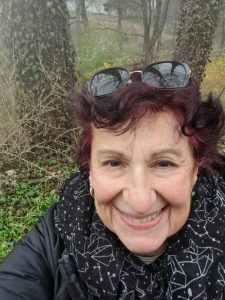
ABOUT THE AUTHOR
Carmela Luttinger works as a clinical psychologist in Montreal Quebec. Born in Bucharest, Rumania, she has been living in Canada since her adolescence. At first interested by science she eventually studied psychology at Université de Montreal. Over the years she found herself passionately reading on subjects such as NDE’s, remote viewing, the ideas of Rupert Sheldrake on morphic resonance, and the philosophy of Ken Wilber. Following a training on Ken Wilber’s Integral Psychology, she became more and more involved on a spiritual path with teachers such as Andrew Cohen, Jeff Carreira and Rupert Spira. She also studied Buddhism with a local organization. She holds a Graduate Certificate in Transpersonal Psychology and Consciousness Studies from the University of Liverpool. Her interest in nondual practice was combined with an interest in philosophy and ideas and she is following the teachings of the philosopher Bernardo Kastrup.
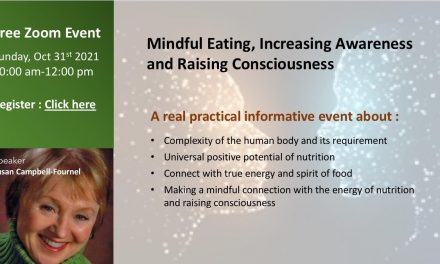
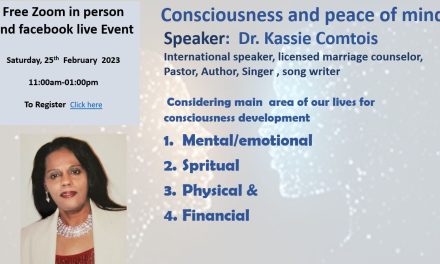
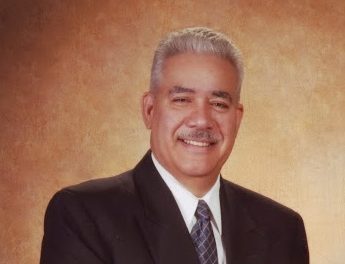
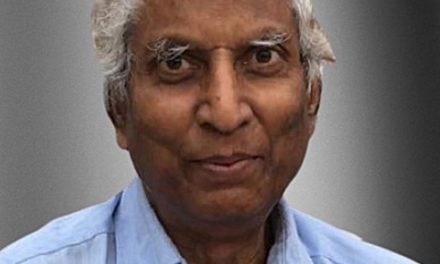
The articles you write help me a lot and I like the topic
I enjoyed reading your piece and it provided me with a lot of value.
Thank you for your articles. They are very helpful to me. Can you help me with something?
Your articles are extremely helpful to me. Please provide more information!
Your articles are very helpful to me. May I request more information?
Thank you for your articles. They are very helpful to me. May I ask you a question?
Thank you for writing this post. I like the subject too.
You helped me a lot by posting this article and I love what I’m learning.